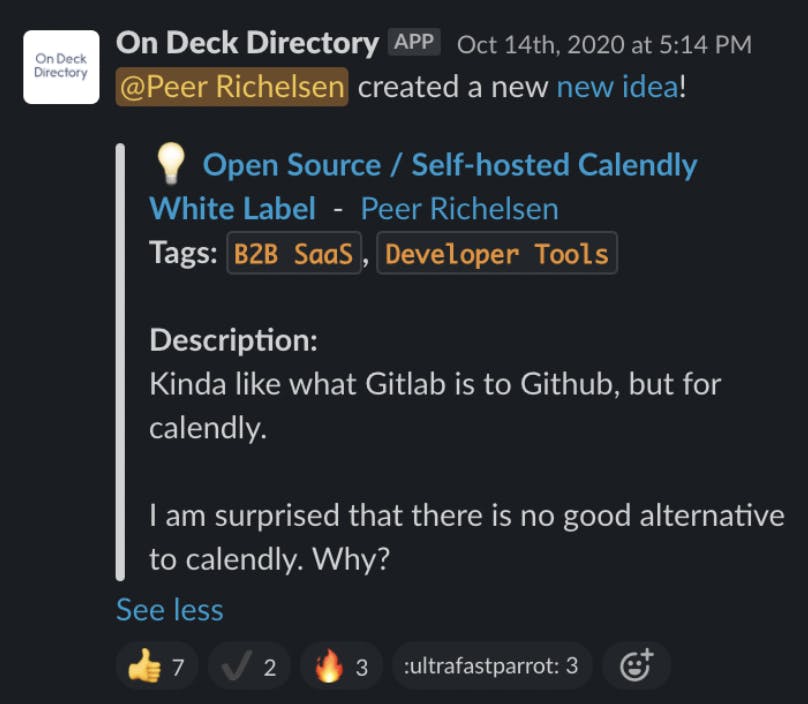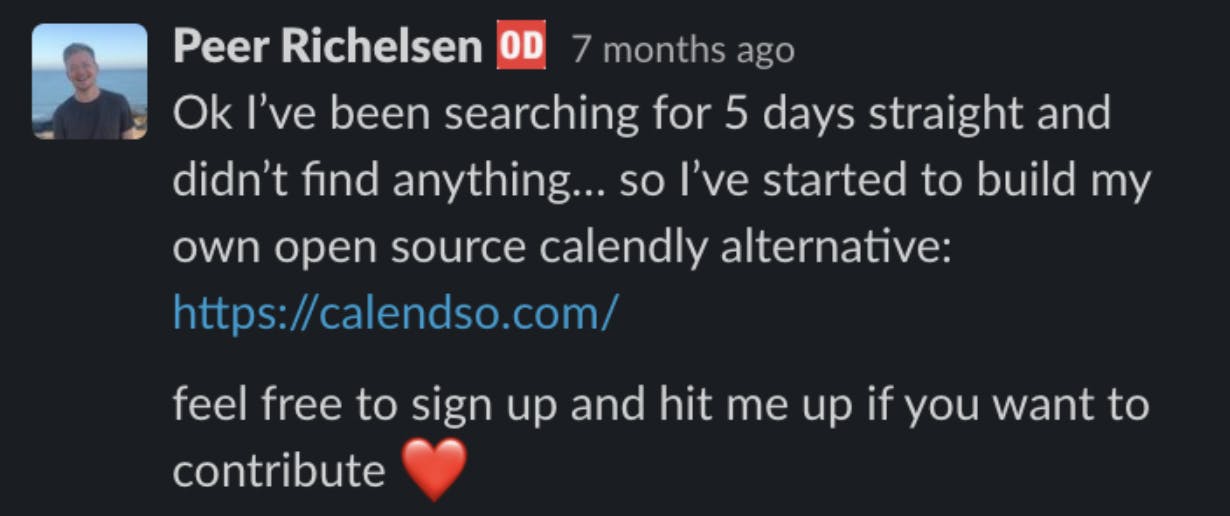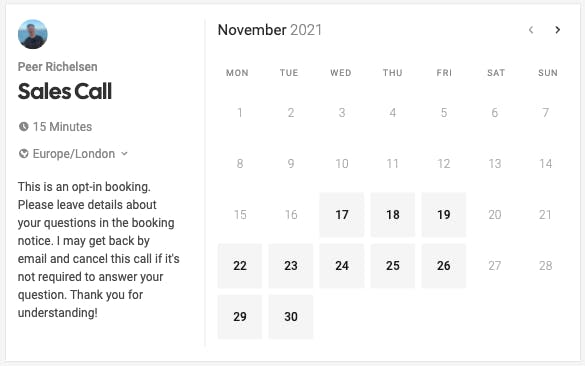Cal.com (formerly Calendso) truly had a rocket ship launch. Interest in the open-source Calendly alternative grew quickly and it rose from #1 Product of the Day, to #1 Product of the Week, and then on to #1 Product of the Month for April 2021.
The Product Hunt team was happy to support Cal.com founders Peer Richelsen and Bailey Pumfleet with a Maker Grant to continue building their product.
After accepting the grant, Pumfleet shared how Cal.com got started and what's next.
Where did the idea to start working on Cal.com come from?
Peer built leanhire.com (which On Deck acquired in January 2021) but before the acquisition, he noticed how crucial scheduling infrastructure was. The hiring platform ran on Calendly and it was just too limited in terms of customization, API, etc.
In October, Peer joined the On Deck Founder Fellowship and after desperately looking for “Calendly Open Source” on Google without success, he asked the community if they knew an alternative.

Peer couldn’t find an open-source alternative so he decided to move forward with the idea:

Two months later, Lean Hire was acquired by On Deck and Peer completely stopped pursuing the idea, but people continued to sign up for the waitlist and joined Cal.com Slack.
I was one of the very first people who signed up for Cal.com, because I also had found a need for more customizable scheduling. When Peer notified me and the other early users that the development will be paused, I immediately reached out to him and we started talking.
Within the first few meetings we really kicked it off and Peer decided to hand over the keys to the kingdom and to fund the first year of development of Cal.com. I joined as co-founder and CEO and from there on, well, here we are 🚀.
Did you know from the start it was going to be open source?
Peer and I are huge believers of open source and it was very clear from the start that the project will always be open source, because we believe that scheduling should be accessible to everyone.
What was the first step you took to get started?
Initially it started out as a waitlist, then a small Slack community and then a very basic prototype. We worked on it further for about 3 weeks, then launched on Product Hunt, as an alpha stage release. Thanks to the huge traction we gained during our launch, we’ve been working super hard to improve the product and iron out bugs with the help of the community.
We’re incredibly focused on building and improving the product and continuing to ship updates quickly.
What has been your biggest challenge with Cal.com?
Trying to constantly keep up with all the feature requests and bug reports from the community and growing customer base. We’re almost pushing updates pretty much every single day and it’s really hard to balance engineering and growth. We’re even hiring full-stack React & TypeScript engineers if you’re interested in joining our team.
What has been your biggest reward?
The opportunity to work on something that we're both passionate about. You’re so much more motivated when you really believe in what you’re doing, and we really believe in making calendar scheduling accessible to everyone. It’s amazing to have had such a positive response from the community and so many people who are interested in our journey.
What's next for Cal.com?
We have ambitious plans to propel Cal.com to the point of being a critical part of remote human-to-human connections, much like the way that email is
We also have a massive product roadmap packed with features, which are all requested and voted on by the community.
Our goal is to connect 1 billion people by 2031. You can reach so many people with open source, a good example being WordPress; they built an entire ecosystem around their open core, with hundreds of thousands of developers building on top of it.
We want to do the same with scheduling infrastructure: empower the next generation to build scheduling applications on top of Cal.com.
To grow and finance our team, we’ve launched a hosted plan which you can sign up for and get started with in minutes. Or, you can self-host the entire codebase. Your choice :).
You must have full schedules and tips for managing your time. Any thoughts on productivity or stress management?
We break everything down into small tasks, and use Sunsama to plan our days. Most of our days involve tackling a bunch of different tasks one by one.
My biggest tip for productivity and stress management is simply to take good care of yourself. Even if you work 100 hours a week, you’re not going to achieve much if you’re not in the right mindset. Exercise plenty, socialise often and prioritize your health. The productivity and motivation will come naturally.
Any other tips for makers to get started?
Join a community of builders. Peer (ODF6) and I (ODF9) are both On Deck fellows and it was where the idea was formed. Plus, there’s always that saying about if you’re surrounded by successful, hard-working people, you will be too. Good makers always learn from each other!
Then, build something that you love using yourself. We’re using our own Cal.com booking links every single day for scheduling customer calls, potential investors, hiring employees and team meetings.
